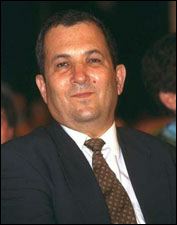 |
| Vol. 1 No. 11 | November 1999 |
 |
| Barak's power play faces opposition in Washington |
It is well-known among informed sources that Syria is frantically opposed to a unilateral Israeli withdrawal for two reasons: First, a withdrawal in advance of the resumption of Israeli-Syrian peace negotiations would deprive Syrian President Hafez Assad of his most valuable bargaining chip--the ability to unleash deadly attacks against IDF forces occupying south Lebanon. Second, and perhaps most important, the premature withdrawal of Israeli forces could seriously jeopardize Syria's long-term control over Lebanon. Assad must be able to claim direct responsibility for the retreat of the "Zionist enemy" from Lebanese soil--casting himself as "savior of Lebanon" will be critical if he is to persuade important segments of the Lebanese population to acquiesce in unity with Syria.
According to Foreign Report, Israel's military intelligence service (AMAN) recently submitted a secret report to Barak strongly recommending a unilateral withdrawal. The London-based based weekly also cited a source close to the Israeli prime minister as stating that "Barak will withdraw soon from Lebanon and expose the 'fox from Damascus' naked."2
On November 8, former IDF chief-of-staff Amnon Lipkin-Shahak defiantly renewed his call for a unilateral withdrawal in advance of the July 2000 deadline. "It isn't a sacred date and if we can do it before there is no reason to wait," said Lipkin-Shahak, who is Minister of Tourism in the Barak administration. He explicitly pointed out that "Syria would be embarrassed by a unilateral Israeli withdrawal from Lebanon, which would raise the issue of the Syrian presence in the country." Former Israeli prime minister Shimon Peres also endorsed an early withdrawal. "There is no reason to wait until July 2000," Peres told Israeli public radio on November 16. "We should be starting the preparations for a unilateral withdrawal within a few months."
Notwithstanding pressure from the US, it appears that there is now a solid consensus in favor of a withdrawal. The focus of the debate has turned to the nature and extent of an Israeli pullout. According to sources in Israel, a number of senior IDF planners have advocated retaining control over a number of small enclaves of high-altitude terrain along the border (the southern end of Al-Marj, the summit in the hills between Adaisseh and Houla, two ridges near Rmeish and Yarin in the western sector, and a fifth area in Jabal Rbaa Teben) in order to prevent enemy surveillance of the northern Galilee.
In addition, the possibility of transferring IDF outposts in south Lebanon to the South Lebanon Army (SLA) militia is still under consideration. Israeli Deputy Defense Minister Ephraim Sneh said last month that "Israel has a moral commitment to the SLA and to the inhabitants of south Lebanon . . . [and] will not abandon the SLA." Israel recently provided the militia with more arms and increased the pay of SLA soldiers.
Officials in Damascus have been greatly disturbed by reports that Barak is on the verge of pulling out IDF forces and, as a result, have issued strong warnings to Israel that a unilateral withdrawal will not bring peace to northern Israel. During their talks in Damascus on November 11, Assad told French Foreign Minister Hubert Vedrine that "Syria will not prevent Israel from withdrawing [from south Lebanon], but the problem of the resistance will continue to face Israel" if IDF forces leave.3 Vedrine apparently took the warning very seriously. During his visit to Beirut the next day, he said in a joint statement with Lebanese President Emile Lahoud that a premature pullout would be "an empty solution, as far removed as could possibly be from the concept of a fair and comprehensive peace."
1 "US 'Trying to Prevent Unilateral Withdrawal'," The Daily Star, 1 November 1999.
2 "Lebanon Withdrawal Imminent," Foreign Report, 10 November 1999. The report, prepared by Amos Gilad, the director of research at AMAN, also warned that Hezbollah has obtained anti-aircraft missiles and extended-range Katyusha rockets which can reach the outskirts of Haifa.
3 Al-Hayat, 12 November 1999.